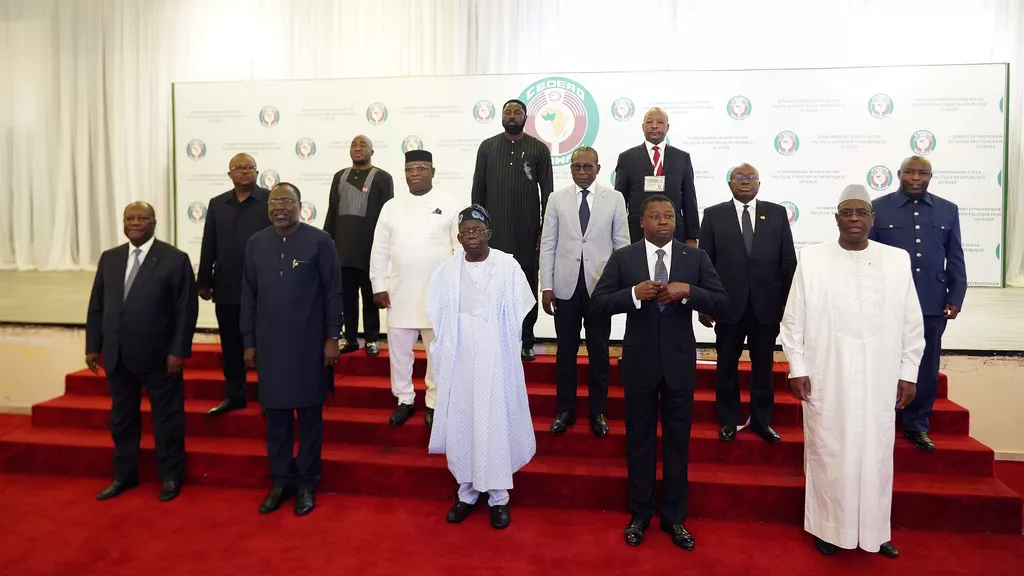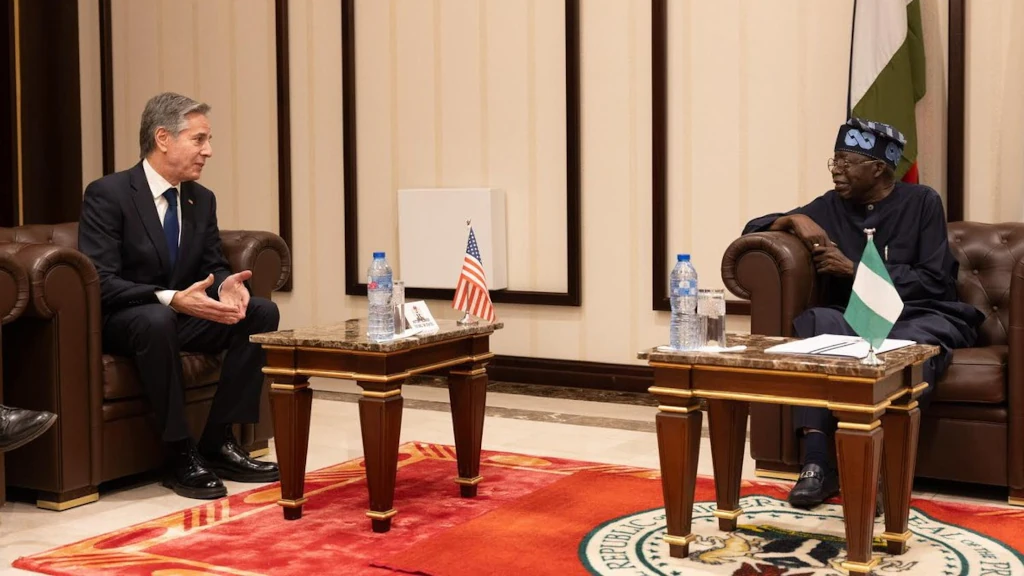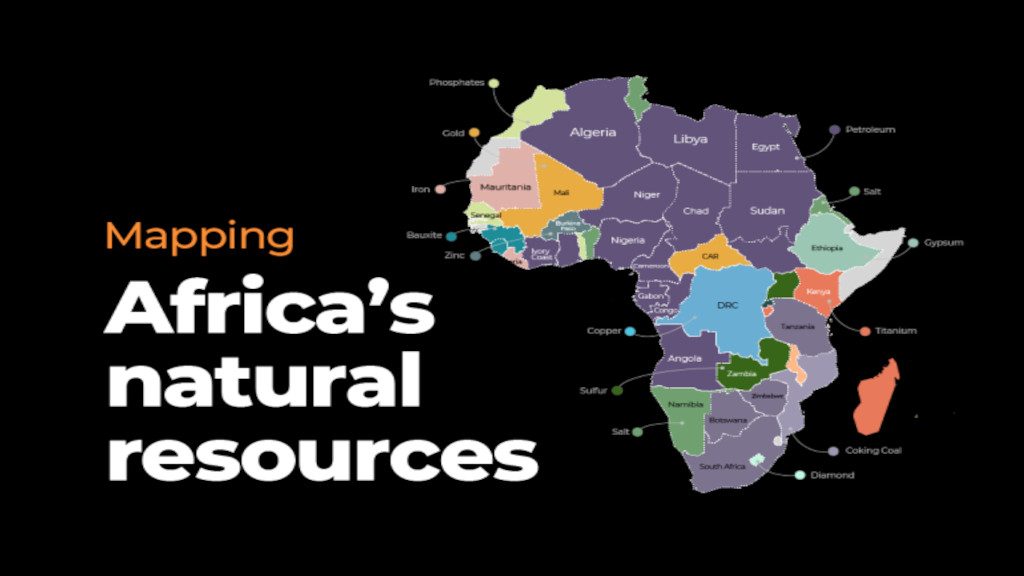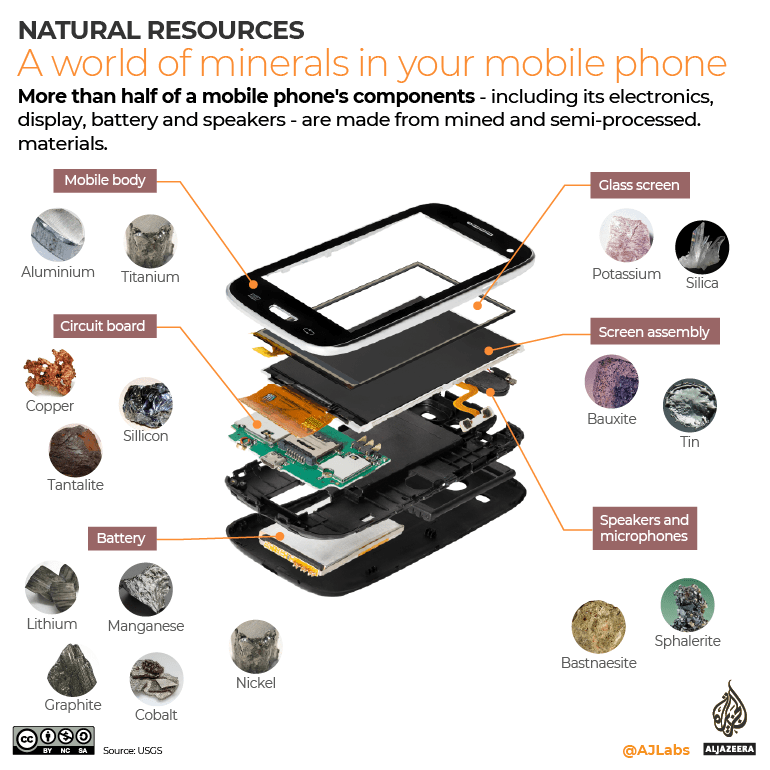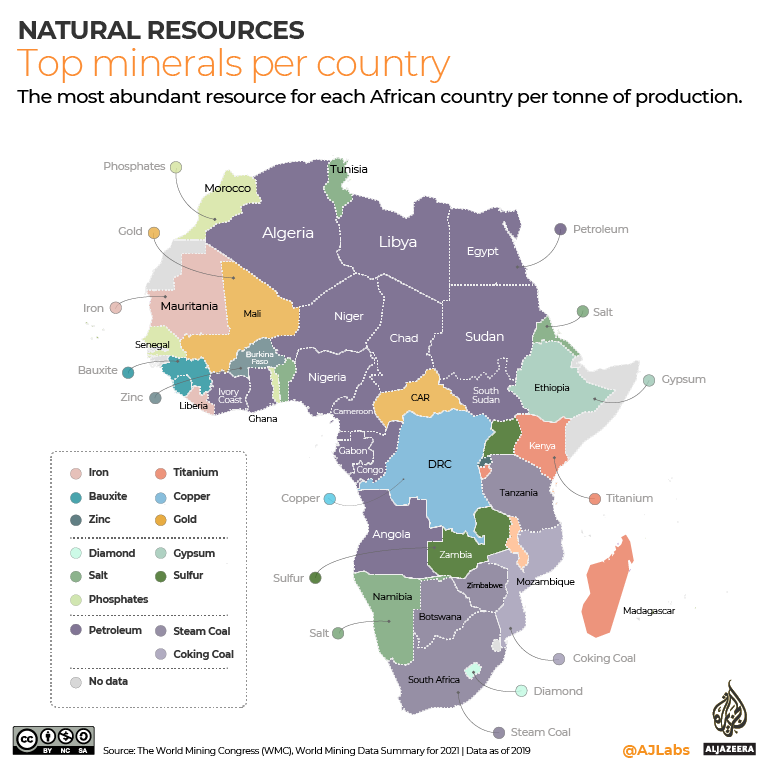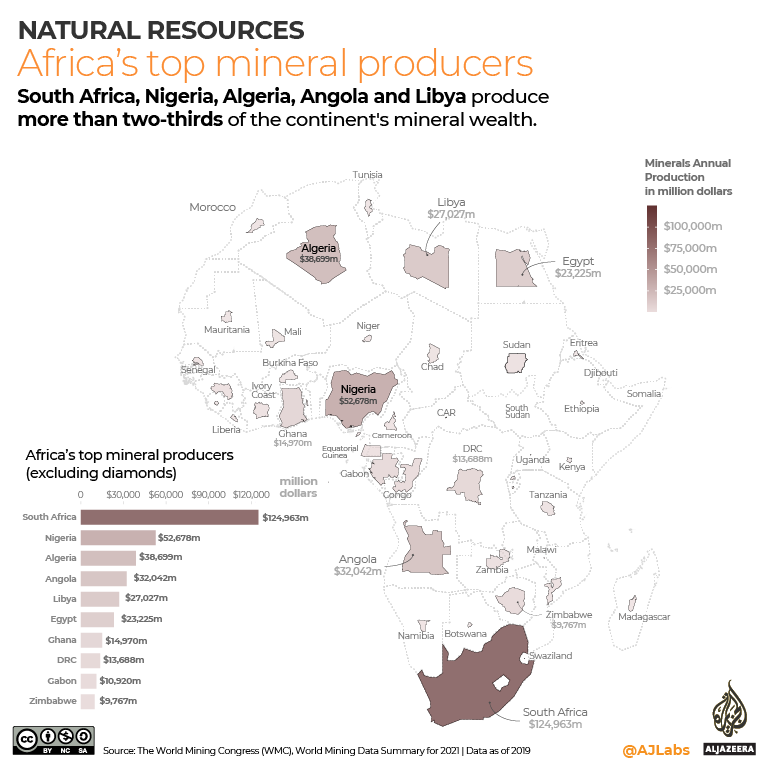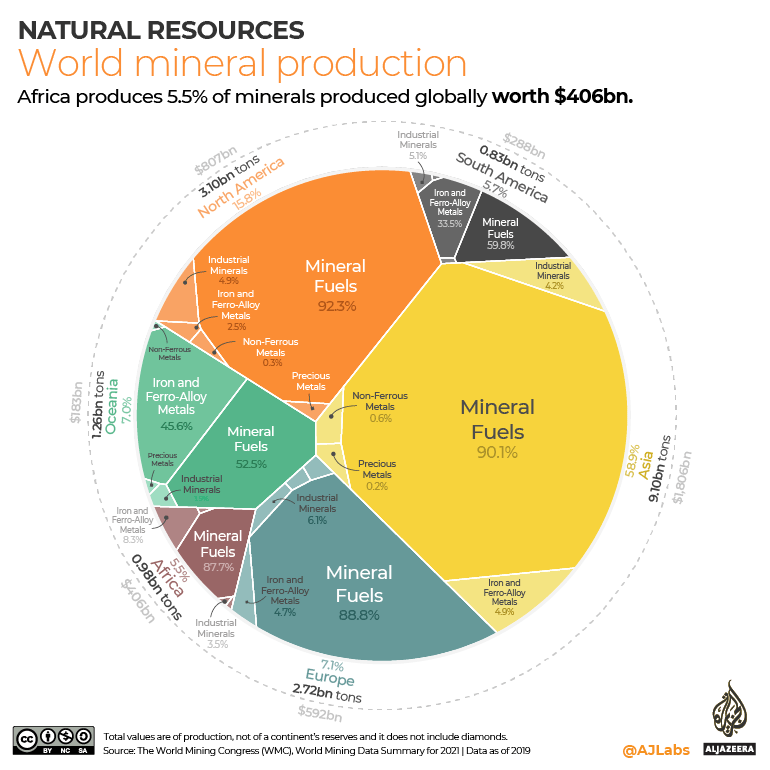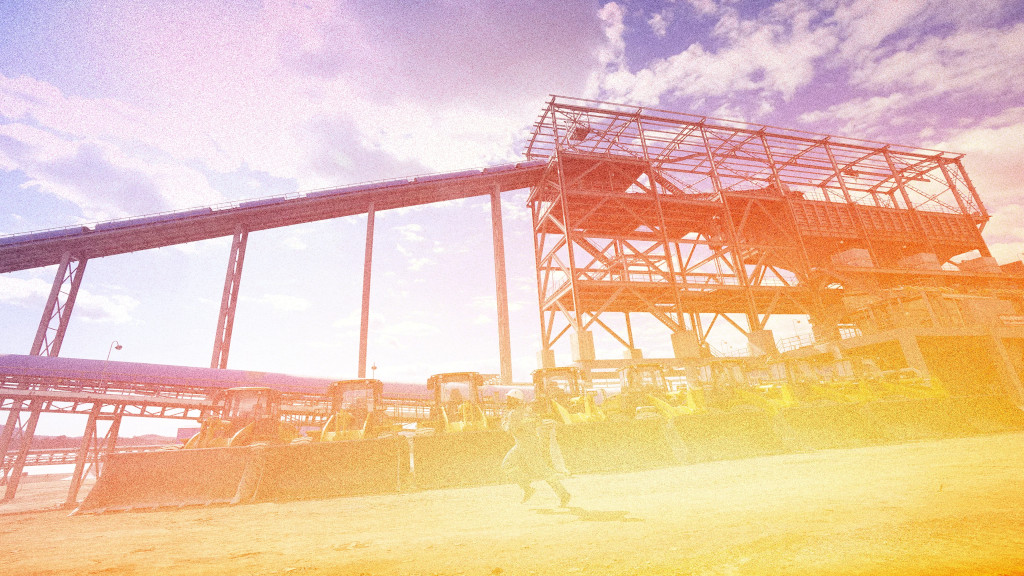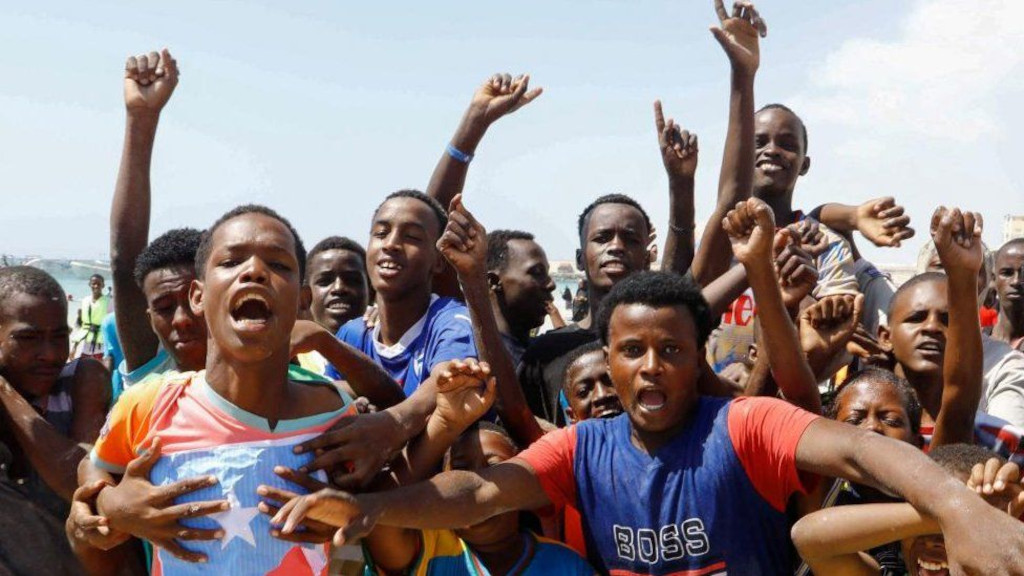Nigeria’s President, Bola Ahmed Tinubu, center first row, poses for a group – Copyright © africanews Gbemiga Olamikan/Copyright 2023 The AP. All rights reserved
Several months of tension between three coup-hit countries in West Africa and the regional bloc known as ECOWAS (Economic Community of West Africa) boiled over when the nations announced their immediate withdrawal from the bloc and accused it of a lack of support and “inhumane” coup-related sanctions.
In their joint statement on Sunday, the juntas of Niger, Mali and Burkina Faso said that instead of helping their countries fight the security threats facing them, ECOWAS imposed “illegitimate, inhumane and irresponsible” sanctions when they staged the coups “to take their destiny into their own hands.”
It’s the first time in the bloc’s nearly 50 years of existence that its members are withdrawing in such a manner. Analysts say it’s an unprecedented blow to the group and a further threat to the region’s stability.
How important is ECOWAS?
The 15-nation regional bloc Economic Community of West African States was established in 1975 with one goal: “To promote co-operation and integration … to raise the living standards of its peoples and to maintain and enhance economic stability. “It has since grown to become the region’s top political authority, often collaborating with states to solve domestic challenges on various fronts from politics to economy and security.
Under the current leadership of Nigeria, West Africa’s economic powerhouse, ECOWAS is needed more than ever with the region’s stability being threatened by rampant coups and security crises. It operates “in a world … where you need to be strong in one bloc and united in solidarity,” said Babacar Ndiaye, senior fellow with the Senegal-based Timbuktu Institute for Peace Studies.
The problem, though, Is that some believe ECOWAS Is fast losing goodwill and support from many West Africans who see it as failing to represent their interests in a region where citizens have complained of not benefitting from rich natural resources in their countries.
“When you see citizens pushing back and seeing ECOWAS as the leaders club or leaders who support each other at the detriment of citizens, it doesn’t work well,” said Oge Onubogu, director of the Africa Program at the U.S.-based Wilson Center think tank.
What is the process of withdrawal from the bloc?
The ECOWAS treaty provides that its member states who wish to quit the bloc shall give its leadership a one-year written notice, at the end of which “such a state shall cease to be a member of the community.”
The treaty says that during that year, the state planning to quit shall “nevertheless observe the provisions” and its obligations under the agreement. However, ECOWAS said it was yet to be notified about the three countries’ decision to quit and that they “remain important members” of the body for now.
Analysts say ECOWAS will likely seek a continued dialogue with the juntas on how best to ensure the region’s stability while the three nations’ military leaders focus on seeking new partnerships.
How significant is such a withdrawal?
One thing is clear. Relations between ECOWAS and the three countries have deteriorated because of the bloc’s choice of sanctions as a key tool to reverse the coups there.
The Alliance of Sahel States that the juntas created in November were also seen by observers as an attempt to legitimize their military governments, seek security collaborations and become increasingly independent of ECOWAS.
But withdrawing from the 49-year-old bloc in such a manner is unprecedented and seen as a “major change in the sub-region,” said Ndiaye with the Timbuktu Institute for Peace Studies.
“It is the most challenging issue facing the subregion since its inception,” said Ndiaye. “All the work they have put into building a collective security mechanism is based on the protocols that posit that democracy, good governance and the rule of law will be the basis for peace and security.”
Russia, prolonged military rule and other possible fallouts
ECOWAS has led efforts to return civilian rule to the coup-hit countries, pressuring the juntas with sanctions and rejecting lengthy transitional timetables.
The worry has been that there is little evidence to show the juntas are committed to holding democratic elections within those timelines. With Sunday’s announcement, analysts say the non-allegiance to ECOWAS may delay the return of democracy in the three countries and motivate coups in others.
“If they are no longer part of the ECOWAS bloc, they don’t have to abide by previous transitional timelines promulgated as a means of easing sanctions against them,” said Ryan Cummings, director of Africa-focused security consulting company Signal Risk.
Cummings says the withdrawal might result in a new opportunity for Russia to expand its presence and interests in Africa.
The once-friendly relations between the three countries and developed nations in the West and Europe had already turned sour after the coups. Russia meanwhile has been more welcoming and continues to play into anti-French sentiment by framing itself to African nations as a country that never colonized the continent.
The Russian mercenary group Wagner has been present in Mali, where it is partnering with the army in battling armed rebels. In Burkina Faso, state media reported last week that Russian soldiers arrived to “strengthen military and strategic cooperation” between the two countries. Both Russian and Nigerien senior officials have also recently hosted each other.
“These countries have in recent months reinforced and entrenched partnerships with Russia from national security to the economy,” said Cummings with Signal Risk.
How much support they could get from Russia remains to be seen. In African countries where Wagner has been present, security crises there have persisted while the mercenary group has been accused of various rights violations.
Source: AfricaNews, 29th January 2024
 afric-Invest
afric-Invest